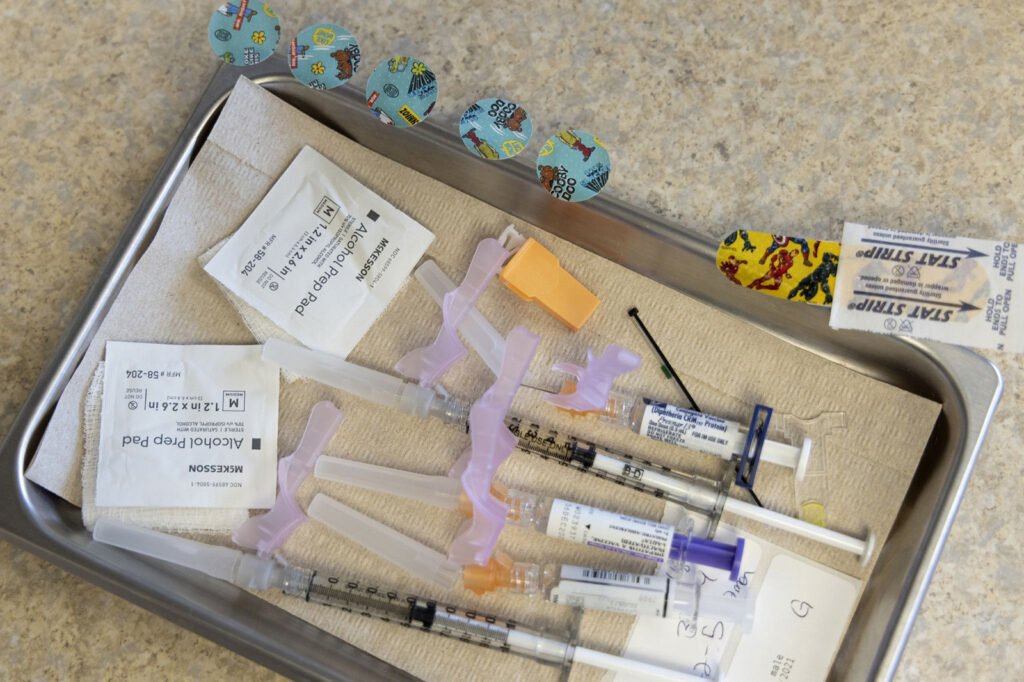The landscape of childhood immunizations is shifting, causing concern among parents and pediatricians alike. With the recent changes in vaccine advisory bodies and potential budget cuts to Medicaid, the future of vaccine coverage is uncertain.
Pediatricians like Lanre Falusi and Deborah Greenhouse are fielding questions from parents about the availability and affordability of vaccines for their children. The removal of key members from the CDC’s Advisory Committee on Immunization Practices and the appointment of new members aligned with anti-vaccine views have raised red flags in the medical community.
Under the Affordable Care Act, health insurers are required to cover all ACIP-recommended vaccines. However, with the potential changes in advisory bodies and Medicaid funding, there is a fear that some vaccines may no longer be covered by insurance. This could lead to parents having to pay out-of-pocket for essential immunizations, putting their children at risk of preventable diseases.
The recent announcement by Health and Human Services Secretary Robert F. Kennedy Jr. regarding the COVID-19 vaccine for healthy children and pregnant women has sparked further controversy. The decision to no longer recommend the vaccine has prompted a lawsuit by medical groups seeking to challenge the directive.
As the debate over vaccine safety and accessibility rages on, pediatricians are urging parents to prioritize their children’s immunizations. The rise in preventable illnesses like measles and pertussis underscores the importance of timely vaccinations. With concerns about potential restrictions on vaccines and coverage changes, parents are being advised to act quickly to ensure their children are protected.
The uncertainty surrounding vaccine availability and coverage is a cause for concern among pediatricians like Melissa Mason and Deborah Greenhouse. The fear of families not being able to afford essential vaccines or missing doses due to cost issues is a real threat to public health.
In the midst of these challenges, pediatricians are maintaining a sense of urgency while trying to alleviate parental fears. The future of childhood immunizations hangs in the balance as the newly appointed vaccine advisory committee prepares to convene in the coming months. The decisions made at these meetings could have far-reaching implications for the health and well-being of children across the country.
As the debate over vaccines continues to evolve, it is essential for parents to stay informed and proactive in ensuring their children receive the necessary immunizations. The collaboration between healthcare providers, policymakers, and families is crucial in safeguarding the health of future generations.


